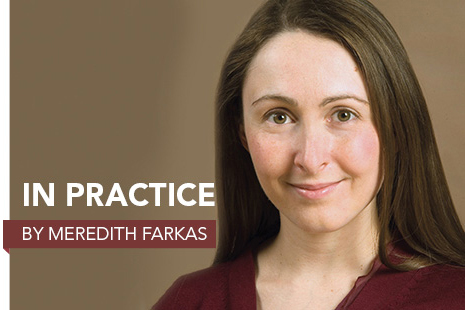
With the growing cost of higher education, declining library budgets, and the crisis in scholarly publishing, it can sometimes be difficult to feel optimistic. Looking at the creative efforts to address these issues through publishing gives me ample hope. Many academic libraries are working to make the scholarly and creative output of their communities widely accessible. They are also supporting the creation of sustainable publishing models through education, institutional repositories, and open access (OA) publishing.
Academic libraries around the world are collecting the scholarly products of their communities in institutional repositories. At my university library, PDXScholar collects and makes freely available online theses, dissertations, culminating papers, and faculty works whose copyright agreements allow for archiving in an institutional repository. We do this to make visible and accessible the amazing work happening at our university.
Some libraries are also developing their own digital publishing imprints in an effort to offer a solid alternative to traditional publishing. The University of Pittsburgh Library System, for example, offers a platform and support for publishing OA journals. It already publishes 30 OA scholarly journals using the Open Journal Systems platform and offers print-on-demand via an Espresso Book Machine. This arrangement supports journal editors in making their publications open access.
Some libraries that have always been engaged in publishing have begun publishing OA books and are experimenting with new forms of scholarship. MPublishing, through the University of Michigan Library, offer a number of series and even publish some UM Press books that are OA. They have also formed Maize Books to produce OA and shorter-form works and will experiment with emerging forms of peer review.
Libraries are also encouraging faculty and graduate students to publish in OA journals. More than 40 libraries listed under the Compact for Open Access Publishing Equity help pay associated author fees. Scholarly communications librarians at many other institutions can help scholars navigate the complex world of author agreements.
Textbook prices are a major issue, with each student spending an average of $1,200 on textbooks each year. Many libraries make textbooks available on reserve, but this doesn’t fully address the issue. The open textbooks movement seeks to produce digital textbooks where the only cost to students would be printing. Most open textbook projects are spearheaded by state governments and foundations, but libraries are also beginning to lend their support to this initiative.
Through grants and library funding, the SUNY Open Textbooks Program will publish 15 OA textbooks by SUNY faculty this year, with graphic design, copy editing, and instructional design services provided by participating SUNY libraries and the SUNY Press. Kansas State University is also engaged in an Open/Alternative Textbook Initiative, offering faculty stipends to either create a free textbook or use OA resources. These initiatives provide a valuable contribution to addressing the growing unaffordability of higher education.
These can be frustrating times for libraries struggling to provide access to materials our patrons need. But groups such as libraries, governments, and nonprofits have spearheaded many projects designed to improve or transform publishing. Individually, they are simply intriguing; when viewed together they indicate a growing movement to help make publishing sustainable and research accessible.
MEREDITH FARKAS is coordinator of general education instruction at Portland (Oreg.) State University. She blogs at Information Wants to Be Free and created Library Success: A Best Practices Wiki. Email librarysuccess[at]gmail.com.


